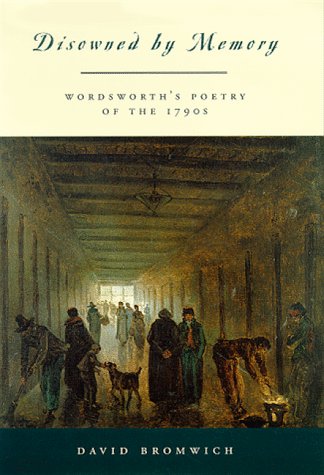Although we know him as one of the greatest English poets, William Wordsworth might not have become a poet at all without the experience of personal and historical catastrophe in his youth. This text connects the accidents of Wordsworth's life with the originality of his works, tracking the impulses that turned him to poetry after the death of his parents and during his years as an enthusiastic disciple of the French Revolution. From these events Wordsworth developed a strong sympathy with political idealism and with the outcast and the dispossessed. The text argues that this sympathy formed the deepest motive of Wordsworth's writings of the 1790s. For example, David Bromwich sees "The Old Cumberland Beggar" as "a radical act of human solidarity" that was key to Wordsworth's development as a poet. Wordsworth's ethical act of attention to the old beggar and others not only crystallized his faith in the power of the imagination to preserve human nature, but also originated the idea of personal consciousness so crucial to modern poetry.
- ISBN10 0226075567
- ISBN13 9780226075563
- Publish Date 15 November 1998
- Publish Status Out of Print
- Out of Print 13 August 2010
- Publish Country US
- Imprint University of Chicago Press
- Format Hardcover
- Pages 196
- Language English
